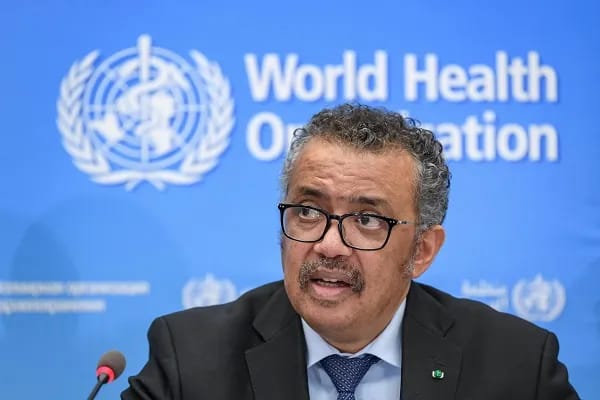
The World Health Organization (WHO) has raised alarm over drastic cuts in global health funding, warning that the sharp decline could severely disrupt essential health services, particularly in low- and middle-income countries (LMICs).
In a new guidance document released in Geneva on Monday, titled “Responding to the Health Financing Emergency: Immediate Measures and Longer-term Shifts,” the UN health agency urged governments to take urgent steps to cushion the impact of the funding shortfall and prioritise domestic investments in healthcare.
According to WHO, external health aid is expected to fall by 30 to 40 per cent in 2025 compared with 2023, resulting in major disruptions to services such as maternal care, vaccination, emergency preparedness, and disease surveillance.
Data from 108 countries show that funding cuts have already reduced some of these services by as much as 70 per cent, while over 50 countries have reported health worker job losses and halted training programmes.
WHO Director-General, Dr. Tedros Adhanom Ghebreyesus, lamented that the sudden and unplanned cuts to aid have dealt a heavy blow to many countries, costing lives and threatening years of progress in global health.
“Sudden and unplanned cuts to aid have hit many countries hard, costing lives and jeopardising hard-won health gains,” he said.
He, however, described the situation as a turning point for countries to build resilience through homegrown solutions.
“But in this crisis lies an opportunity for countries to transition away from aid dependency toward sustainable self-reliance based on domestic resources,” he added.
He noted that the new guidance provides practical steps for countries to mobilise, allocate and use resources more efficiently to sustain health systems and protect vulnerable populations.
The WHO document urges governments to treat health spending as a critical investment in human capital and national stability, rather than a cost to be trimmed during fiscal crises.
Key recommendations include protecting essential health budgets, prioritising services for the poorest, improving efficiency through better procurement and reduced overheads, and integrating donor-funded programmes into national primary healthcare systems. It also encourages countries to use health technology assessments to ensure value for money in health spending.
Several African nations have already begun taking measures to close the funding gap. Nigeria, for instance, increased its national health budget by $200 million to offset donor shortfalls, with more funds allocated to immunisation, epidemic response, and key public health programmes.
Ghana lifted the cap on excise taxes earmarked for its National Health Insurance Scheme, boosting its health budget by 60 per cent, while Uganda has outlined a policy framework to integrate health services for greater efficiency.
Dr. Tedros said WHO and its partners remain committed to supporting countries through the transition, providing technical assistance, financial analytics, and peer learning platforms.
The organisation will also launch a new Universal Health Coverage (UHC) Knowledge Hub in December 2025, in partnership with the Government of Japan and the World Bank, to help countries strengthen their health financing systems and accelerate progress toward universal health coverage.
WHO stressed that addressing the current health financing emergency requires both strong national leadership and renewed global solidarity to prevent decades of progress in public health from being reversed.